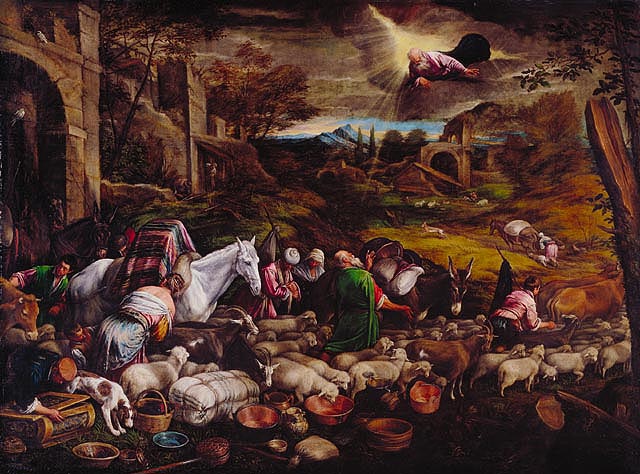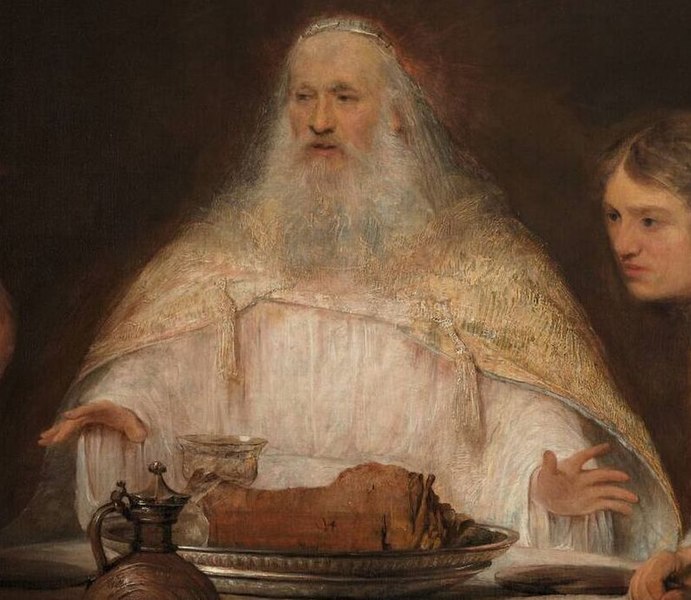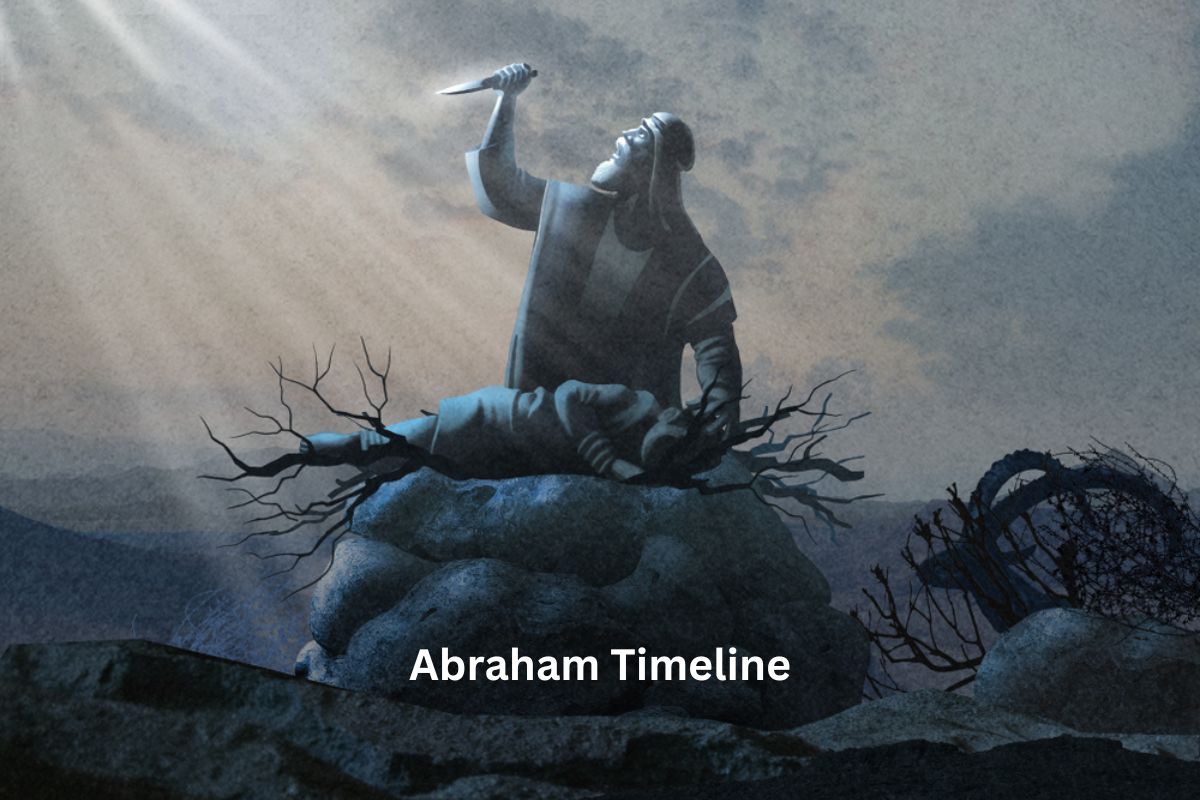Abraham, a pivotal figure in the Abrahamic religions of Judaism, Christianity, and Islam, lived during a period around 2000-1800 BCE.
His life is chronicled in religious texts and traditions, and he is celebrated for his unwavering faith, obedience to God’s call, and the establishment of a covenant between God and his descendants. This covenant promised land, numerous descendants, and divine blessings.
Abraham’s journey took him from his birthplace in Ur of the Chaldeans to the Promised Land of Canaan. Along the way, he faced trials, including the famous “Binding of Isaac” and the birth of his sons, Ishmael and Isaac.
Abraham’s legacy endures as a foundational figure in the history of monotheism, leaving a profound impact on the world’s major faiths. In this exploration, we delve into the significant events that shaped the life of Abraham and his role in shaping religious history.
| Event | Description |
|---|---|
| Birth of Abraham | Abraham (originally Abram) was born in Ur of the Chaldeans. |
| Call of Abraham | Abraham received a divine call to leave his homeland and follow God’s guidance. |
| Migration to Haran | Abraham, Sarah, and Lot left Ur and settled in Haran, modern-day Turkey. |
| Covenant with God | Abraham entered into a covenant with God, who promised to make him a great nation. |
| Journey to Canaan | Abraham, Sarah, and Lot traveled to the land of Canaan, the Promised Land. |
| Interaction with Pharaoh and Abimelech | Abraham had encounters with Pharaoh of Egypt and Abimelech, involving his wife Sarah. |
| Birth of Ishmael | Hagar, Sarah’s maidservant, bore Abraham’s first son, Ishmael. |
| Birth of Isaac | Miraculously, Sarah gave birth to Isaac, fulfilling God’s promise. |
| The Binding of Isaac | God tested Abraham’s faith by instructing him to sacrifice Isaac, but provided a ram as a substitute. |
| Sarah’s Death and Burial | Sarah died and was buried in the cave of Machpelah, which Abraham purchased. |
| Marriage of Isaac | Abraham arranged Isaac’s marriage to Rebekah. |
| Death of Abraham | Abraham died in Canaan and was buried next to Sarah in the cave of Machpelah. |
Timeline of Abraham in the Bible
Birth of Abraham (2000-1800 BCE, estimated)
Abraham, originally named Abram, was born in the ancient city of Ur of the Chaldeans, which is located in what is now southern Iraq. At this time, Ur was a significant Sumerian city known for its advanced culture and civilization.
Call of Abraham
The call of Abraham is a pivotal event in his life. According to the biblical account, God spoke to Abraham and instructed him to leave his homeland, his family, and everything familiar to him and go to a land that God would show him. This divine call marked the beginning of Abraham’s journey of faith and obedience.

Migration to Haran
In response to God’s call, Abraham, along with his wife Sarah (originally named Sarai) and his nephew Lot, left Ur and embarked on a journey to a place they did not yet know.
They initially settled in the city of Haran, which is located in what is now modern-day Turkey. Haran served as a temporary stop on their journey towards the Promised Land.
Also Read: Timeline of Abraham to Moses
The decision to leave Ur and settle in Haran was a significant step of faith for Abraham. It required leaving behind the security and familiarity of his home and taking a leap of faith in response to God’s promise.
This period of sojourning in Haran was a time of preparation for the challenges and blessings that awaited Abraham in the land of Canaan.
While in Haran, Abraham continued to cultivate his relationship with God and received further guidance as he prepared to embark on the next phase of his journey, which would ultimately lead him to the land of Canaan.
Covenant with God
The covenant between Abraham and God is a pivotal moment in the biblical narrative. In Haran, after Abraham had responded to God’s call and settled temporarily, God entered into a sacred covenant with him. This covenant was a divine promise to make Abraham the father of a great nation and to bless him abundantly.
Also Read: Moses to Jesus Timeline
The covenant between God and Abraham had several key components, including the promise of land (the Promised Land, later known as Canaan), numerous descendants, and divine protection and blessing. God also changed Abraham’s name from Abram to Abraham, signifying his role as a father of many nations.
As a symbol of the covenant, God instituted circumcision as a physical mark on Abraham and his male descendants. This practice was a visible sign of the covenant and a reminder of God’s promises.

Journey to Canaan
After receiving God’s promise and entering into the covenant, Abraham, along with his wife Sarah and nephew Lot, continued their journey to the land of Canaan. This land was the focal point of God’s promise, and they set out in faith to reach it.
The journey to Canaan was not without challenges. Along the way, they faced various trials, including famine, which led them to temporarily sojourn in Egypt (where Abraham presented Sarah as his sister to protect himself). Later, they returned to Canaan, and Abraham and Lot had to part ways due to disputes over land and resources.
Interaction with Pharaoh and Abimelech
During their sojourns in Egypt and Gerar (ruled by Abimelech), Abraham had encounters involving his wife Sarah. In both instances, Abraham was concerned for his safety and presented Sarah as his sister rather than his wife. This was a strategy to avoid potential harm, as he feared that others might desire Sarah and harm him to take her.
In Egypt, Pharaoh took Sarah into his household, but God intervened to protect her and Abraham. Pharaoh eventually realized the truth and sent them away with their possessions.
A similar situation occurred in Gerar, with King Abimelech taking Sarah. Again, God intervened, revealing to Abimelech in a dream that Sarah was Abraham’s wife. Abimelech returned Sarah to Abraham and bestowed gifts upon them.
These episodes illustrate the challenges and complexities that Abraham faced while journeying to the Promised Land. They also demonstrate God’s protective care for Abraham and Sarah, ensuring that the covenant promises would be fulfilled.
Birth of Ishmael
Sarah, Abraham’s wife, was unable to conceive a child, and she decided to take a culturally accepted route to provide her husband with an heir. She offered her Egyptian maidservant, Hagar, to Abraham as a concubine. Hagar bore a son named Ishmael, who became Abraham’s firstborn.
The birth of Ishmael created family dynamics and tensions within Abraham’s household. While Ishmael was Abraham’s son, he was born to Hagar, not Sarah, and this would later lead to complex relationships within the family.
Ishmael is considered the father of the Arab people in Islamic tradition, and his story is significant in the development of the Abrahamic faiths.

Birth of Isaac
Despite Sarah’s previous infertility, God miraculously fulfilled His promise by allowing Sarah to conceive and give birth to a son named Isaac. This event occurred when Abraham and Sarah were quite advanced in age, highlighting the miraculous nature of Isaac’s birth.
Isaac’s birth was a critical fulfillment of God’s covenant with Abraham, as it was through Isaac that God’s promise to make Abraham the father of a great nation would be realized.
Isaac’s name means “he laughs,” which reflects Sarah’s initial disbelief and subsequent joy at the prospect of having a child in her old age.
The Binding of Isaac
One of the most iconic and challenging stories in the Abraham narrative is the “Binding of Isaac,” also known as the Akedah. In this event, God tested Abraham’s faith and obedience by instructing him to offer Isaac as a burnt offering on Mount Moriah.
Without questioning, Abraham prepared to carry out this difficult task, taking Isaac to the designated place and even binding him on the altar. However, at the last moment, an angel of the Lord intervened, stopping Abraham from sacrificing his son. Instead, a ram was provided as a substitute sacrifice.
The Akedah is seen as a profound test of faith and a demonstration of Abraham’s unwavering trust in God. It is often interpreted as a symbol of God’s willingness to provide and the concept of substitutionary sacrifice.
Sarah’s Death and Burial (Age 127)
Sarah, the wife of Abraham and the mother of Isaac, passed away at the age of 127. Her death occurred after the events of the Akedah.
Abraham mourned the loss of his beloved wife and arranged for her burial in the cave of Machpelah, which he had purchased as a burial site. This cave, located in Hebron (in modern-day West Bank), became a significant burial place for Abraham, Sarah, and later, other biblical figures.
Sarah’s death marked the end of an era in Abraham’s life, as he continued his journey and faced new challenges without his longtime companion.
Marriage of Isaac
After the death of Sarah, Abraham’s wife, he turned his attention to ensuring that his son Isaac would have a suitable wife who shared their faith and heritage. Abraham’s desire was to find a wife for Isaac from among his own people and not from the local Canaanites.
Abraham tasked his trusted servant, often identified as Eliezer, with the responsibility of finding a suitable bride for Isaac. Eliezer took an oath before Abraham and set out on a journey to Abraham’s homeland to seek a wife for Isaac.
In a providential encounter at a well, Eliezer met Rebekah, the granddaughter of Abraham’s brother Nahor. Rebekah’s kindness and willingness to help Eliezer and his camels led him to believe that she was the chosen one. Eliezer presented gifts to Rebekah and her family and sought their approval for her to marry Isaac.
Rebekah agreed to marry Isaac, and she left her family to join him in Canaan. Their union was seen as a fulfillment of God’s plan to continue the covenant promises through Isaac’s descendants.
Death of Abraham
Abraham lived a long and eventful life, marked by his faith, obedience, and numerous encounters with God. According to biblical accounts, he died at the age of 175 in the land of Canaan, the Promised Land.
After Abraham’s death, his son Isaac and Ishmael came together to bury their father. They buried Abraham in the cave of Machpelah in Hebron, alongside his wife Sarah. This cave had been purchased by Abraham as a burial site earlier in his life.
Abraham’s death marked the passing of a patriarch and a central figure in the Abrahamic faiths. He is revered as a man of great faith and righteousness, and his legacy continues to influence the beliefs and traditions of Judaism, Christianity, and Islam.
The promises made to Abraham by God, including the covenant and the promise of numerous descendants, would be carried forward through his son Isaac and Isaac’s descendants, shaping the history of these monotheistic religions.
